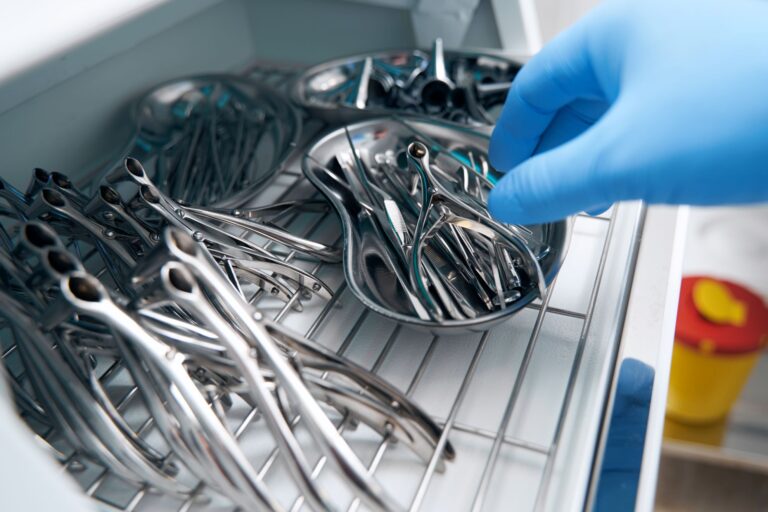If you want to delete company or personal information, you can delete your files. It’s one of the first things people do when they want to get rid of their old electronics, and they think it’s enough. If you’re working, you deleted a customer’s information, or at home, you’ve deleted a copy of your passport now that you have a new one.
Deleting this data simply isn’t enough to altogether remove it from your device. When you delete your files, the only thing it will do is remove the route it takes to get to the file. Many people think their data is gone when, in reality, it’s still there; there’s just no pathway to get to it.
Anyone who is experienced with technology can easily access this information if put into the wrong hands. As you continue reading below, we’ll discuss the do’s and don’ts of Atlanta electronics recycling and how to safely remove your data.
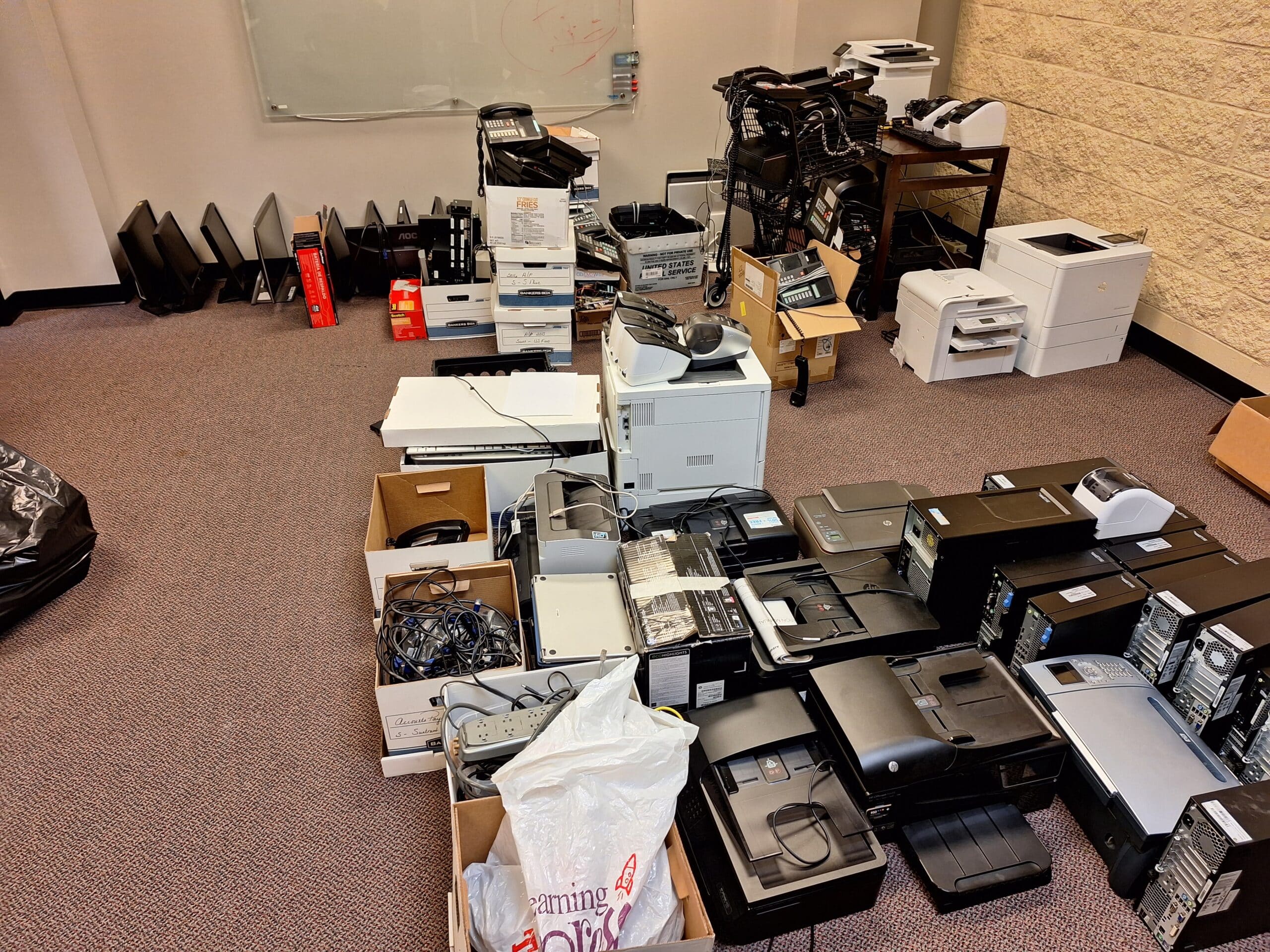
Why Deleting Files Doesn’t Remove Your Data
When using Atlanta electronics recycling, it’s essential to understand why deleting fields doesn’t remove your data. Let’s dive into the differences between deleting files and data destruction.
Deleting Files vs. Destroying Data
When many people throw out their electronics, deleting files is the first thing they do, thinking it will be enough. Depending on what type of program you have on your computer, you might drag a file over to your trash can or right-click it and choose “delete file.”
When using the Windows operating system, you’ll see a trash icon on your desktop that collects any folders or files that you’ve deleted. From time to time, you might empty that bin and think those files are gone for good. An experienced hacker would have no problem accessing these files when given the opportunity.
Destroying your data is the only method to delete your data for good. There are different ways to destroy data. Some will take the physical approach and use a hammer. This approach is not recommended because it leaves tiny traces of shards that still hold your data and can still be accessed.
Some might reset this device, but this, too, is not the most efficient option. There’s also the option of hard drive shredding, which makes it impossible for hackers to recover. When you use a hard drive eraser program, your files are removed and replaced with different characters.
Some hard drive erasers are free, while others are available for purchase. No matter what option you choose to go with, you should ensure you pick the best approach to secure your data. Another option you can use is the degaussing method.
Degaussing alters the domains that use data storage, such as hard drives, and scrambles the information so you can’t retrieve the data. When the domains are changed, the electronics can’t be restored and reused. Degaussing is often used in government settings to destroy files before the electronic device is shredded.
Hard drive shedding is a process where a machine made for heavy-duty electronics shreds the drive into tiny pieces. Those small fragments are then separated and sorted into glass, metal, and plastic, where they’re melted down and reused to make new electronics.
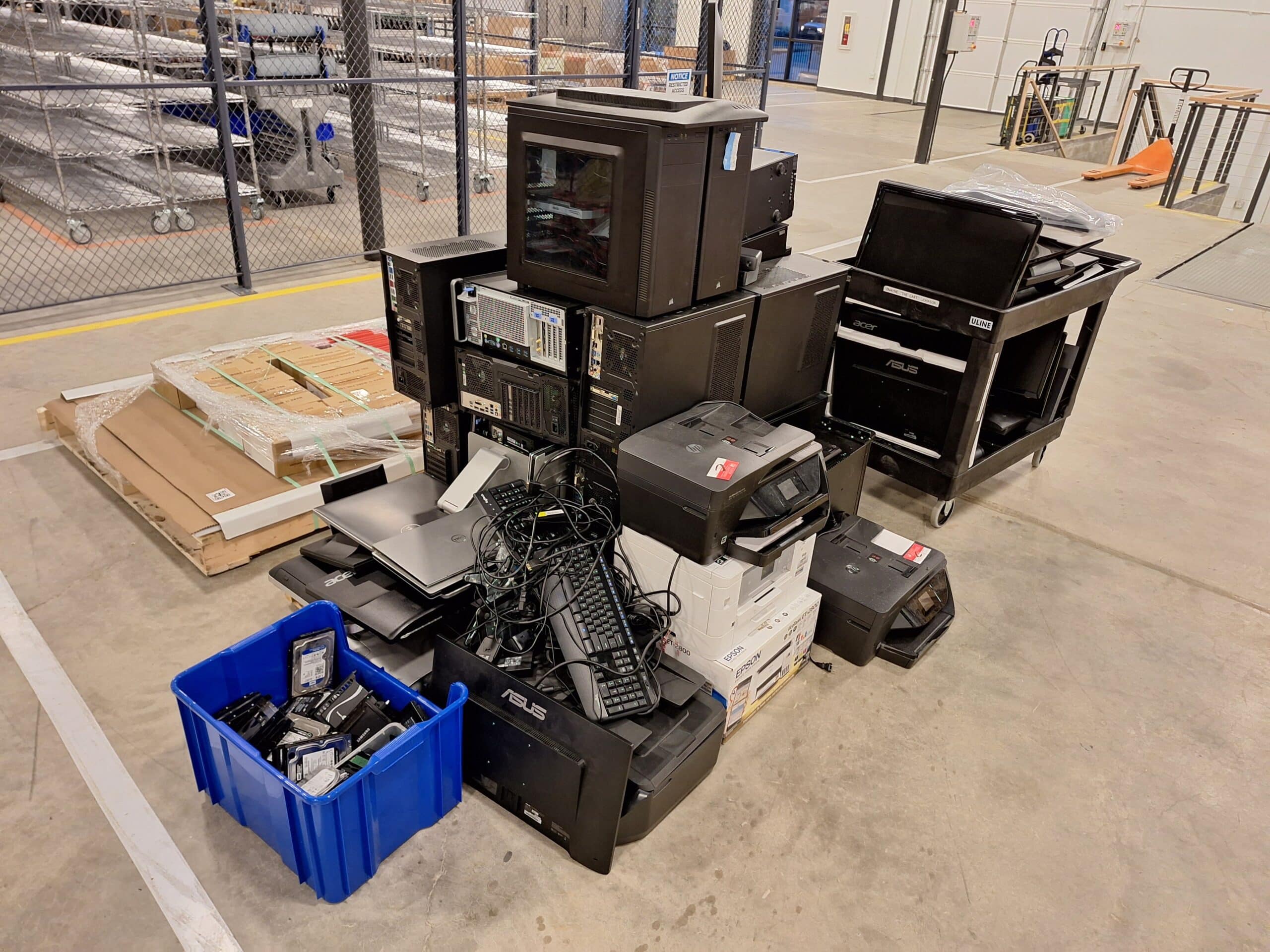
What Files Can You Delete and Destroy?
When considering Atlanta electronics recycling, before you begin the recycling process, how do you know what date you can delete and what data you can destroy? The most essential rule to determine this is to look at the file itself. Any information, such as birthday or other party invitations, won’t attract a thief, but those tax forms are a completely different story.
If you have files with tax information such as your address, social security number, driver’s license, and date of birth, that’s considerable valuable information to a hacker.
How are you able to decide what files are acceptable to destroy and what files are fine to delete? Before choosing either approach, you should ask yourself a few questions.
- Would I need this file months or years later?
- Would this file cause financial harm?
- Do any of these files contain confidential customer or medical information?
- Are there any files that can be used against me?
If you’ve answered yes to most of these questions, it would be best to destroy your data. Before considering Atlanta electronics recycling, you need to destroy all of your data. The only way to ensure that you can’t recover your data is through data destruction.
How to Safely Remove Your Data When Using Atlanta Electronics Recycling
Your personal or business computer might contain a lot of information on it. Whether it’s essential financial information or tax information, before you get rid of your old electronics, you’ll want to safely remove your data before using Atlanta electronics recycling. Here are three essential steps to take to ensure your data remains protected.
Backup Your Data
Before backing up your data, you’ll want to consider the type of information you’d like to save, whether it’s important documents, photos, videos, etc. Knowing what kind of information you want to save and how much space you’ll require will allow you to decide the best option to backup your data. Here are some options:
First Option: If you bought a new computer, you can transfer your information from your old device to your newer one. Many manufacturers provide a manual on how to transfer your data over to a new device.
Second Option: A second option is that you can save your files and other data online. Some people save their information online using the cloud, Google Drive, or Dropbox. There are many places where you can save your data online, and some will even offer you free storage to start.
When you store your data on the cloud, you’ll have an encryption service to protect your data. Encryptions scramble information to hide what’s inside of your file. If you’ve been considering using cloud-based storage, you should research the amount of privacy they offer.
Third Option: Your third and final option is that you can save your files on an external device. One affordable option that many tech users opt for is a USB drive. An external hard drive is also another option, although it costs a little more.
An external hard drive provides more capacity and can transfer your information faster. With this option, you can choose what information you want to back-up and schedule automatic updates.
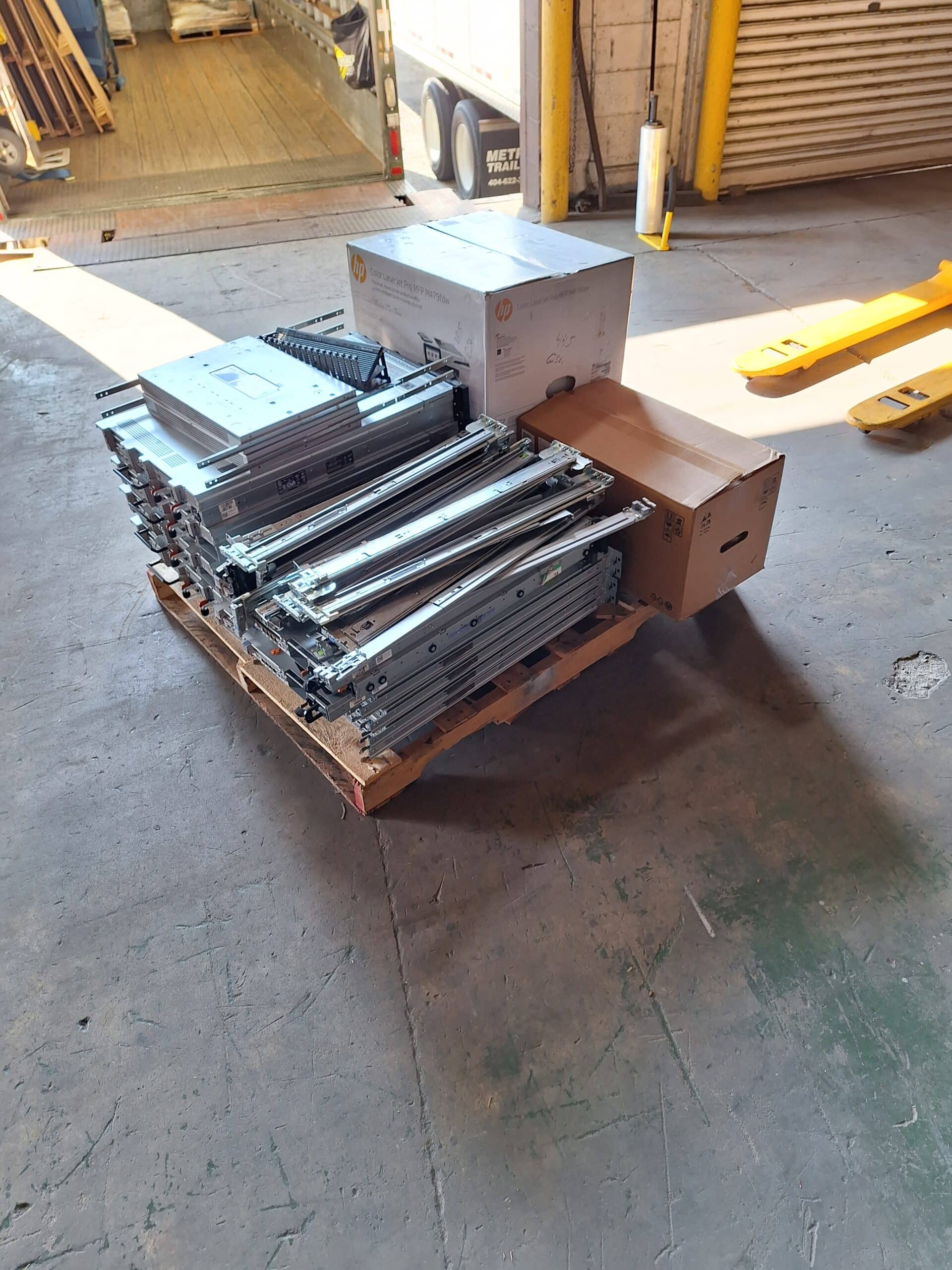
Don’t Just Remove Files From Your Computer
The next thing you’ll want to do is wipe your computer’s hard drive. Many operating systems come with a program that allows you to erase all of your information and reset it to its regular factory settings. Here are four steps you can use to wipe your hard drive.
When you move your files over to the recycling bin, you might think that you’re permanently deleting them. The issue with this is when you delete your files you’re not getting rid of them, you’re just hiding them out of view. Many recovery programs, often used by hackers, can easily retrieve this information.
The reason being, is that when you delete files from the recycling bin, the file name is erased, and the computer can’t view the file. This means that the space on the computer used to hold that file no longer has space for the file. However, the file is still hidden on your computer’s hard drive.
Your file will remain on the computer’s hard drive until its location is turned over to host a new file. The risk for this is when your files aren’t completely deleted from your computer’s hard drive; hackers use a data recovery program to retrieve them.
When law enforcement confiscates computers, they can use a data recovery program to retrieve its data. In a similar fashion, hackers can use the same tools to steal your identity.
Use a Program to Wipe Your Hard Drive
Today, there are specific software programs you can use to wipe your hard drive. When using these programs, there’s a slight chance that you’ll be able to recover your information. On the plus side, no one can use recovery software to recover your deleted files.
Many data destruction programs can overwrite deleted data, making it impossible for data recovery programs to retrieve the files. If you’re looking for an accessible data destruction program, you can use DBAN, which will erase all files on your hard drive.
Physically Destroy Your Hard Drive
If you really want to ensure that your data is removed from your hard drive, you can physically destroy your hard drive. There are many different approaches to this, such as taking it apart with a screwdriver, using a rare earth magnet, or hard drive shredding.
You can use a rare earth magnet to twist the metal plates in your computer to damage the hard drive. By twisting the metals, this makes the hard drive impossible to use.
Another method you can use is to take your hard drive to a professional and use their hard drive shredding service.
Install a New Operating System
Another way you can rewrite your hard drive is by installing a new operating system. By installing a new operating system, you can completely clean your computer and its files. This is essential, mainly if you give your old device to a friend or family member.
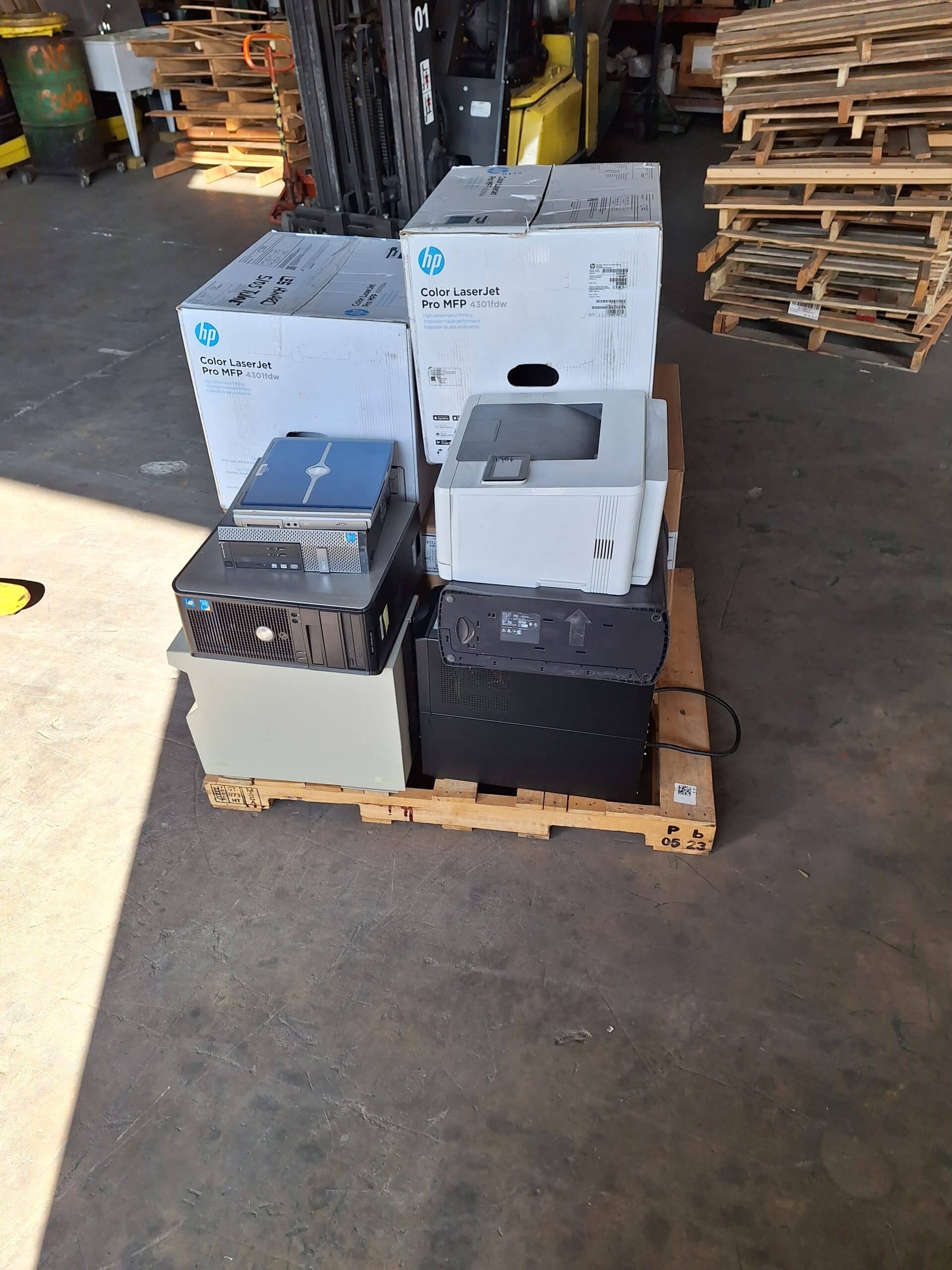
Are There Risks if I Don’t Wipe My Hard Drive?
If you don’t wipe your hard drive before considering Atlanta electronics recycling, you’re giving cybercriminals the opportunity to steal your data. When you dispose of your electronics without properly wiping your hard drive, you also run the risk of losing your information.
Every day, hackers are looking to gain access to personal information, financial information, emails, passwords, and anything they can get their hands on. Once a hacker gains access to this information, they’re able to sell it on the dark web.
Hackers can also buy the data to launch cyberattacks to commit theft and extortion. This means that if they gain access, they can create bank accounts, purchase items with your credit card, and leave you with the consequences to deal with.
Hackers are also looking for confidential information such as private messages, photographs, and anything else you wish to keep private. If you don’t completely wipe your hard drive, hackers can use this information as blackmail.
Beyond Surplus Electronic Recycling
At Beyond Surplus, we strive to provide a safe and secure solution to properly disposing of computers, their components, and other forms of electronic waste. Our services are convenient, secure, and cost-effective for Atlanta and surrounding areas.
You can recycle your old computers and electronics with our free services. If you’ve been wondering how to recycle your electronics, our experts can help! In addition to helping residents, we also offer our services to small businesses, colleges, and other educational facilities.
To help your business comply with Atlanta regulations, Beyond Surplus has one of the best services for Atlanta electronics recycling. Our team of experts complies with Atlanta regulations and provides a hassle-free approach to recycling computers. Our specific recycling services include:
- Computers & Laptops – Our professionals can recycle your motherboards, laptops, computers, and other parts and stay in compliance with local regulations. For the most part, these services are free for the Atlanta metro and surrounding areas.
- Hard Drive Shredding – You can protect your sensitive information and your customers’ personal data by using a hard drive shredding service. Our hard drive shredding service can destroy data that is beyond recovery.
- IT disposal – Our professionals can help your company correctly dispose of your IT assets. If you have bulk items you need to dispose of, we can buy them outright
To receive a custom solution for your company’s electronic disposal needs, call us today!
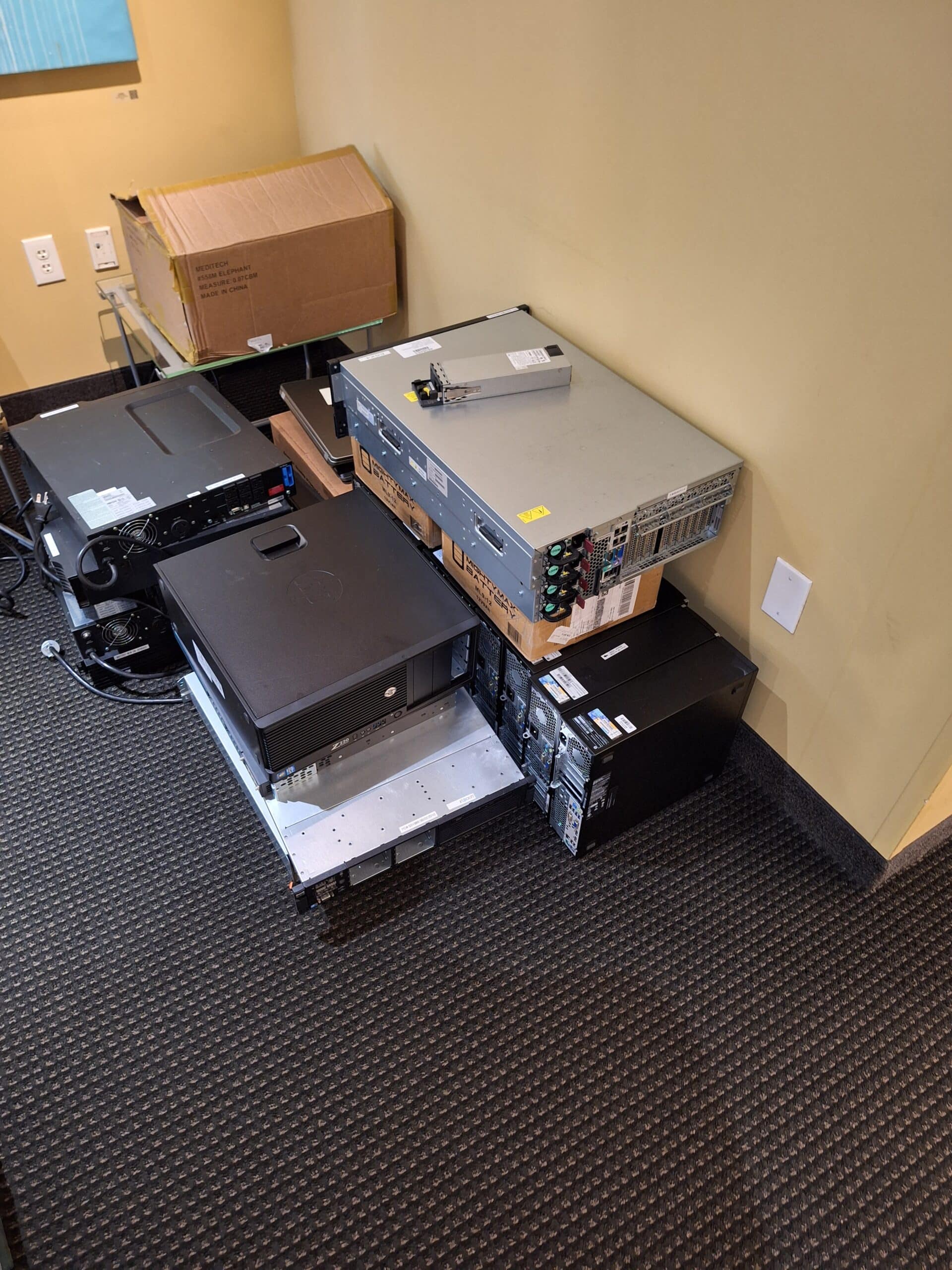
Atlanta Electronics Recycling: FAQ
1. How do I dispose of electronics in Atlanta?
To dispose of electronics in Atlanta, you can contact Beyond Surplus for our recycling services.
2. How do you dispose of old computers or electronic devices?
Some companies offer local drop-off opportunities for computers and other types of electronics.
3. How can you destroy a hard drive?
You can destroy a hard drive by hard drive shredding.
4. How do you remove data from electronics before recycling?
To securely erase your data, you should move or backup all of your valuable documents.

